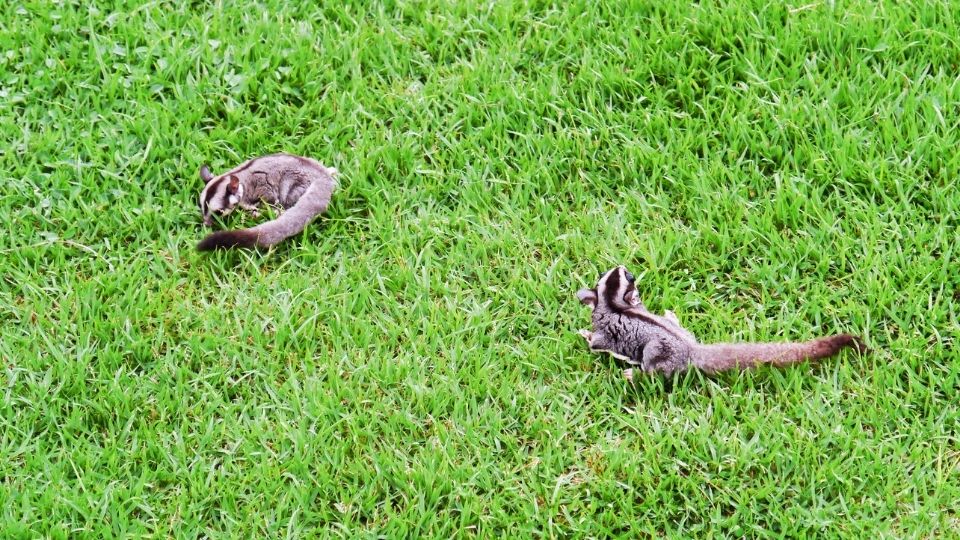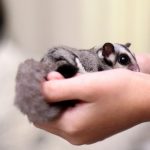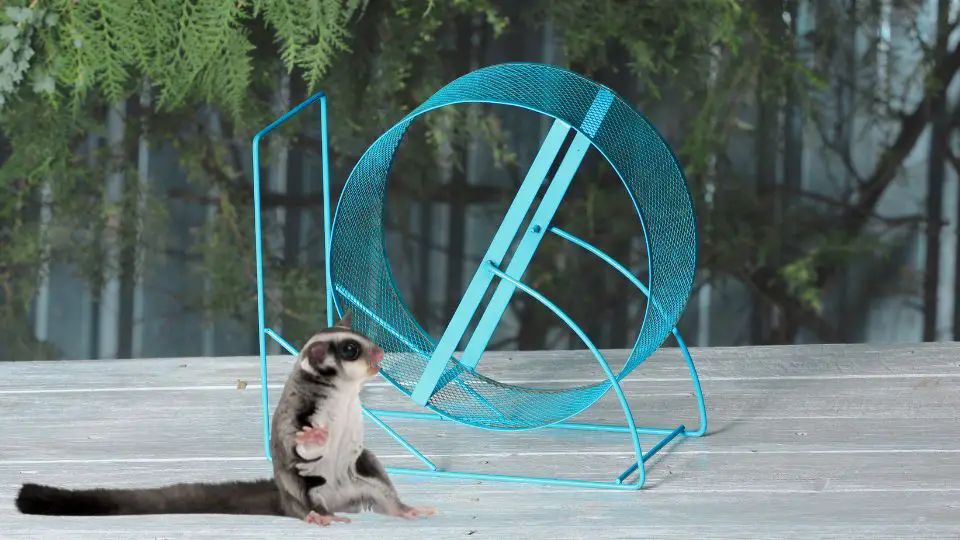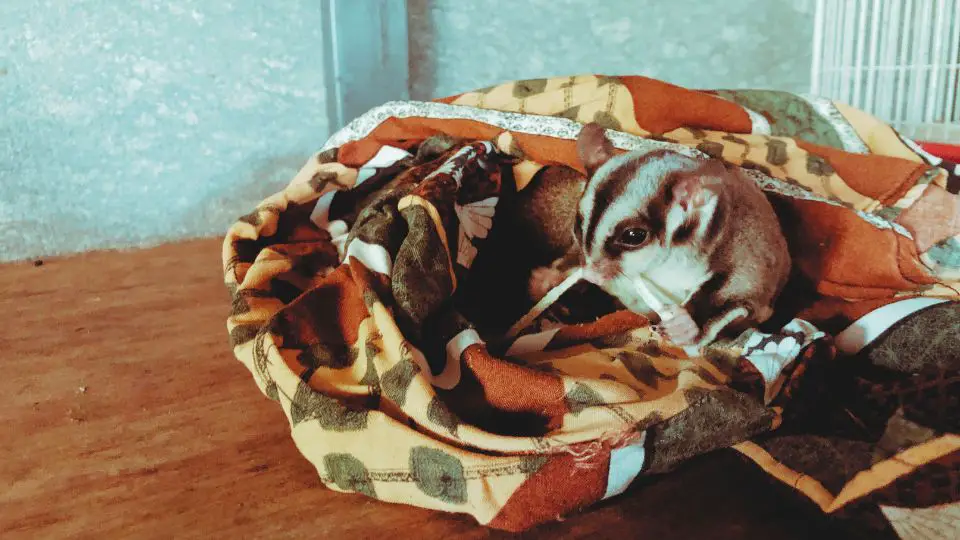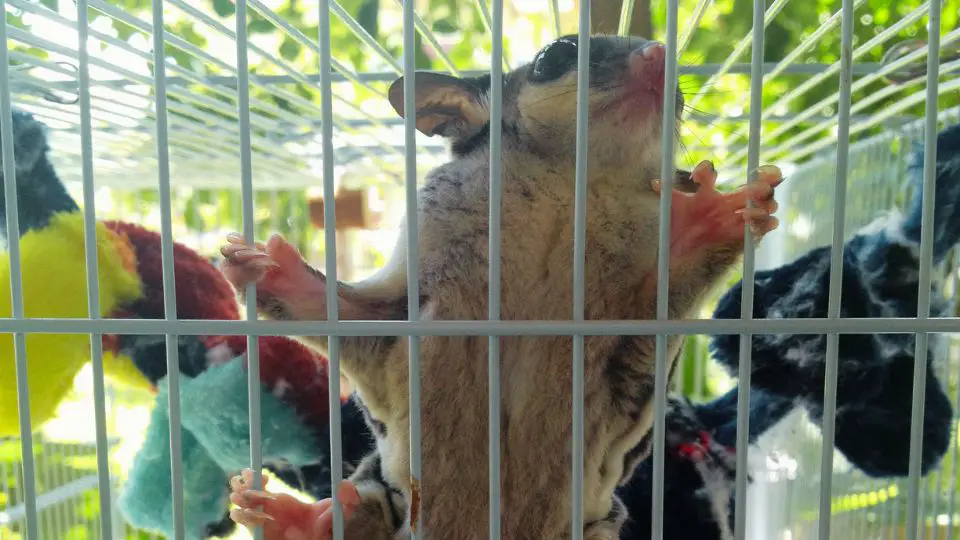Sugar gliders are recognized for their nighttime sounds as well as their ability to glide from branch to branch in the air. Sugar gliders communicate with each other and with the surrounding environment by making sounds.
A barking glider sounds like a little puppy or a small dog that has swallowed a squeeze toy. If your sugar glider is attempting to communicate with other sugar gliders or even you, expect some barking. Remember, sugar gliders are nocturnal, so that “little dog” barking in the middle of the night may be your sugar glider down the hall.
Each glider has a distinct scent that allows others to identify him or her. The dominant male, on the other hand, aggressively marks his group members with saliva and scent glands on his chest and forehead. That’s a surefire technique to determine whether or not someone belongs in the colony.
Sugar Glider Sounds and Noises
Barking
It sounds like a chihuahua yipping at the door.
Reasons include boredom, enthusiasm, frustration, calling someone, and sometimes seems to be a lack of any purpose at all.
Crabbing
Like a locust, gurgling and gradually getting higher in pitch before dropping in pitch again. A screeching noise that can be heard throughout the house is very loud and is repeated on a regular basis. Sugar gliders are said to generate the most ubiquitous sound in the world.
The reason is agitation, fear, a warning call, or a cry for help.
Hissing / Sneezing
Snake hisses, extremely brief and intentional hisses, and repetitions of these sounds are often heard.
Sneezing or hissing sounds are made by sugar gliders when they groom themselves by spitting into their palms and bathing themselves with the saliva. An analogy might be made with a cat brushing itself after it’s been scratched by another cat’s paw. It is possible that this action is causing the hissing/sneezing sounds.
When they make this sound, pay attention to their body language to determine if they are in pain or just agitated or fearful. Unless their tail is sticking straight up in the air and they seem to be slumped over, it is likely that they are having difficulty going to the potty and this has to be addressed. Alternatively, if it is winter, they may be sneezing as a result of a respiratory ailment.
Grooming noises are the most common cause of irritation, fear, and discomfort, while there may be no apparent purpose for them at all.
While hissing is not generally associated with an angry sugar glider, it has been observed that they hiss at each other while fighting or otherwise not getting along. Keeping an eye on them will ensure that you don’t put them in a circumstance that might lead to this, such as not having adequate eating sites available.
Purring
Sounds similar to a cat’s purr, a little drum pounding extremely quickly and quietly, or a rapid heartbeat. It would have to be within inches of your face in order to hear a sugar glider sing very faintly.
The reason is that he is happy and fulfilled.
Unlike a lot of barking, or noisy crabbing, when your sugar glider purrs, you’ll know all is okay in their world. When sugar gliders are in a good mood, they will behave in this manner. The only drawback to a sugar glider’s purr is that it is so faint that you won’t be able to hear it from a distance, and it is very difficult to capture on video for demonstration purposes.
Singing
When people speak about sugar gliders singing, they aren’t referring to their suggies generating a lovely song that’s pleasant on the ears. Rather, when a sugar glider sings it sounds more like the tsk-tsk-tsk of a revolving water spray than a melody.
Female sugar gliders sing to their joeys while they are nursing. While they may also be showing love and admiration for their new offspring, most typically they are attempting to reposition a nursing joey to a more comfortable posture.
How do they communicate in the wild
In order to avoid being preyed upon by owls and snakes, this nocturnal animal makes extensive use of its gliding ability, jumping from branch to branch for protection.
When threatened, according to Teresa Bradley Bays, author of “Behavior of Small Mammals”, „they will produce a white, oily secretion from their paracloacal glands, which has the odor of soured fruit. Sugar gliders will assume a defensive posture by standing on their hind legs with head extended, often with the mouth open. If really frightened, they may lie on their backs with their feet up in the air while vocalizing”. Even the most ferocious predator should be put off by this!
What to do with the night noises
The nighttime sounds that the pet sugar gliders produce are tolerated by the majority of pet owners, and in some cases, are even regarded as adorable and sweet. Others, on the other hand, may find it to be disruptive and downright intolerable to cope with on a nightly basis.
The nighttime sounds that sugar gliders produce are frequently accepted as part of the deal when caring for these charming pets, but there are a few helpful measures to keep them from making too much noise.
In order to avoid disturbing those who are sleeping in the vicinity of the cage, it is not advised that you place it in a bedroom or within hearing of where they will be sleeping.
Probably the most effective strategy to halt or prevent some of the more abrasive sounds that sugar gliders produce, such as crabbing and barking, is to ensure that your glider is comfortable in its new habitat.
Several of these sounds are just routine behaviors for them, and they do not necessarily produce these noises on a consistent basis throughout the night. It’s also considerably less prevalent when they’re accompanied by a friend. What should be done in response to this excessive barking? I feel it is typically preferable to ignore them rather than rushing into them every time or rewarding them with a treat since this reinforces the habit (when I bark, mom arrives!)
But if you have only one glider or the barking persists for an extended period of time, it’s a good idea to check up on them and maybe even engage in some playfulness with them as a result of the excessive barking. If the barking seems to be very loud and frequent, I would certainly investigate to make sure they are all okay!
The hissing and chattering are often caused by the sugar glider attempting to communicate with another sugar glider or to get the attention of its caregiver. It should be assumed that your sugar gliders will make these joyful sounds, before you even bring them into your house.

